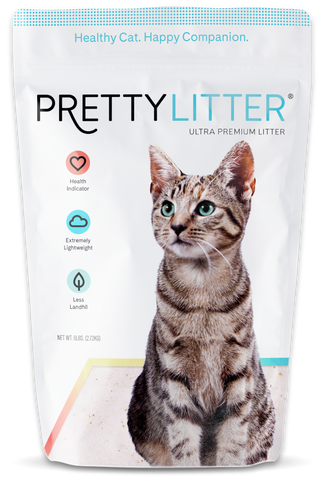
One of the cutest characteristics of our cuddly kitties is the unique language they speak. Whether it's a brush of the leg in the purr-fect greeting or a "back off" groan, catvocalizationcan have many translations.
Cats are just like us humans – they have moods and aren't afraid to share them. One minute they're curling up on your lap and purring, the next minute they're giving you a death glare from the top of the cat tree.
As acat owner, knowing when your cat is in the mood for lovin' or is more likely to bite your arm off can be quite a puzzle to solve, but it isn't impossible.
Let's crack the cat code and translate your cat's frequently used "words" andweird noises into something you can work with.Here are the differentcat noises and what they mean:
Happy Cat Noises
At her happiest, your cat will cuddle up and watch your favorite show with you. She might even snuggle up next to her canine sibling and give him a kitty kiss.Different sounds includingmeowing, purring, and other peppynoisessounds are indicators of a happy cat. If your cat is snoring, it likely isn’t a cause for concern. Reach out to a vet if you hear any abnormal wheezing or sounds.
Meowing
Meowing, a verycommon cat noise, usually means that your cat wants something from you. Kitties typically meow when they want to be fed, touched, or given absolute attention. If your cat has a set dinner time you may notice that she uses the exact same meow each time, like a sort of dinner alarm clock.
Sometimes, when your cat meows, it's simply her way of expressing herself. She could be singing a song, reciting a poem, or spilling your secrets – that's one cat code you'll never crack.
In older cats, meowing for no reason may be cause for concern. According to the ASPCA, "Elderly cats suffering from mental confusion, or cognitive dysfunction, may meow if they become disoriented." This can indicate underlying conditions like the feline version of Alzheimer’s Disease, so be sure to get Fluffy checked if you're worried.
Purring
A purring cat usually meansyourfeline friendis comfortable and content. When you snuggle up to her and she purrs, that's felinese for, "I love you."
Sometimes cat purrs may indicate stress or nervousness, but that's likely not the case if your cat is in your arms – likely one of her favorite places on earth.
Chirping
Cats often converse with each other using chirps and trills. You may also find that your cat will chirp at you to lead you to something, like her food bowl.
The English translation of a cat chirp is, "follow me!" or "hey, look at this!"
Chattering
Occasionally, you may find your fur-baby chattering, especially while "window hunting."Yourfemale cat may express thisexcessive vocalization when she's playing or when she sees something outside, like a bird.
While there isn't a known translation for chattering, it's believed to be an instinctual hunting behavior that mimics the movement cats make with their jaw once they have prey between their pearly white teeth.
Cranky Cat Noises
Like us, cats have their bad days, too. No, they didn't have to drive to work in bumper-to-bumper traffic this morning and no, they also didn't have to pay for a surprise parking ticket during their lunch hour.

But hey, stress is relative and everyone's entitled to a bad day every once in a while.
Yowling
Yowling is one of the harder cat noises to translate. It has various definitions depending on your cat and her surroundings.
Yowling is one way cats signal to other cats that they're ready to mate – a sort of mating call, if you will.
Another reason your cat may be yowling is to keep people or her siblings out of her space. Yowling is a feline version of a "KEEP OUT" sign.
A cat's yowl may also indicate that she's injured or sick. If you notice a change in behavior in combination with a yowl, you should take your fur-baby to the vet to make sure she's okay.
Growling
Dogs aren't the only ones that growl. If your cat growls at you, she's basically warning you away and letting everyone know she's pissed.
Hissing
Oftentimes, hissing cats are frightened. They hiss as a way to protect themselves from anything or anyone they feel threatened by.
According to The Cornell University College of Veterinary Medicine, "Cats demonstrating fear aggression may flatten their ears against their heads, hiss, bare their teeth, or crouch low to the ground with their tail tucked under their body, and their fur may stand on end."
While hissing is one of the most alarming cat noises you'll hear from a cat, remember that her scary tone are meant to protect herfrom something she perceives as scary and threatening.
When your kitty hisses at you or a friendly visitor, it's best to change your behavior or approach towards her – and leave her alone to cool off for a while. Let your cat calm down by giving her space rather than trying to win her over, and don't force her into a situation she clearly isn't ready for.
Speaking Cat Language Like a Champ
All cats are different and each have their own unique language (just like you, boo!). But it's far easier to crack the cat code and translate their meows and growls when you know what to listen for.
Does your cat make any unique noises? What do you think she's trying to tell you? Share with us in the comments below!
Sources:

